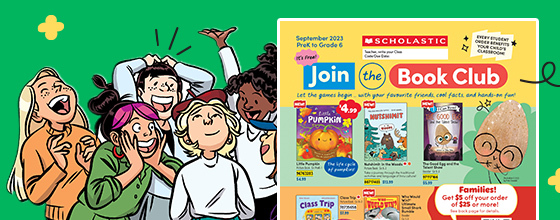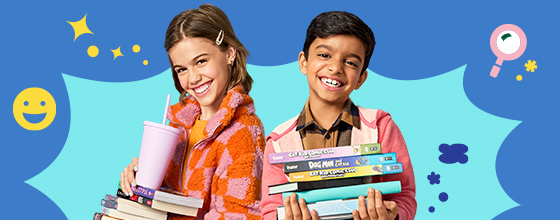Originally published by Scholastic Parents on October 6, 2022
Versioned for Scholastic Canada
Let’s face it: In everyone’s super busy schedules, settling in with your kids to read a story is such precious time. But you can make it even more valuable and boost the skills your child gets out of reading by asking a few strategic questions. As a bonus, it’ll make the reading experience more interesting and engaging for both of you!
“When you ask questions during story time, it really helps children learn to be active readers and to think critically,” says Tammy Milby, Ph.D., director of reading in the Department of Education at the University of Richmond. “When parents can get kids thinking and discussing a text, it makes story time a richer experience.”
Ask these questions before, during, and after a story to encourage your young learner to think about the text in a more in-depth way (it’s OK if your child can’t read independently yet!).
Jumpstart your child’s creativity and attention to detail! “This question helps children notice and think about clues from the title and illustrations,” says Milby. What’s more, it piques their interest in the book, while encouraging them to think about any background knowledge they have on the story’s topic to make predictions.
In general, try to keep your questions open-ended (Ask, “What do you think this story is about?” rather than, “Do you think this story is about a superhero?”). “Open-ended questions facilitate conversation and vocabulary building by giving the child the chance to formulate a full response,” adds Milby.
Every so often, cover a word in a sentence and ask this question. “It helps with children’s syntax, because they’re indirectly noticing that they need to choose either a noun, adjective, verb, or so forth based on what helps the sentence make sense,” says Andrew DiNapoli, director of curriculum at the Baldwin School District in New York.
It also encourages observational skills, since your child will choose a word based on what they’ve learned about the story so far (perhaps every sentence ends with a word that rhymes with “cat”) or what they decipher from the illustrations (perhaps there’s a rat in the picture).
Simple recall questions help you gauge your child’s reading comprehension. It’s common for a child to skim past words or names they’re not familiar with, but remembering these basic facts helps them to better answer more complex comprehension questions later on, and boosts attention and memory skills. What’s more, knowing all of the important details will help make the rest of the book far more engaging and enjoyable. If necessary, flip back through the pages to find the answer together.
When your child thinks about a character’s traits, they may begin to decide if they would make the same decisions as that character. It also encourages your child to consider the relationships between characters. “Understanding those relationships leads to a better comprehension of the overall story,” says DiNapoli. “Seeing certain relationships — say, that between a mother and a child — helps the reader better understand the character’s ability to move through specific challenges and conflicts.”
You could also phrase this question as: “Can you make a connection between what’s happening in this book and something in your own life?”. “We want kids to make these powerful connections to their world because it helps them to better understand what’s happening around them,” says Milby.
This question encourages your child’s reasoning skills. “At this point, they’re thinking about the big ideas within the story, but also the authorial moves that were made,” says DiNapoli. “The author made a decision by telling the story from a certain point of view, but if you tell it from another character’s point of view, the plot might change.” Consequentially, to answer, your child will need to consider how the characters, setting, and structure are connected.
Your child will need to reflect on the story to answer this question, and will also need to think comprehensively about the various routes the plot could have taken. “If the theme of the story is honesty, then they might brainstorm other solutions to the plot’s conflict that reflect that theme,” says DiNapoli. For the more advanced reader, you may even ask, “Can you create an ending to the story that shows how the characters solved the problem in a different way?”
 Book Clubs
Book Clubs
Scholastic Book Clubs helps kids discover the joy of reading. Together, we put can’t-miss books into kids’ hands—at can’t-miss prices, while also giving back to a teacher's classroom!
Visit us online Book Fairs
Book Fairs
Bookjoy or bust! Millions of children have discovered books—and a lifelong love of reading—at a Scholastic Book Fair.
Visit our site